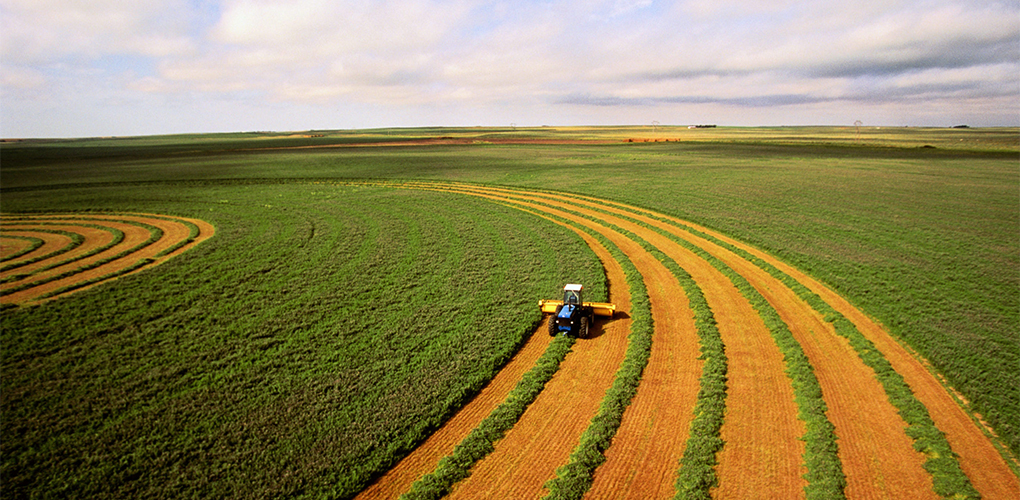Department of Agricultural Economics

About
The department initially started in September 2008 with the admission of graduate student majoring in Rural Development, followed by admitting undergraduate students majoring in Agricultural Economics in September 2013.
The department has five faculty members in the field of Economics and one member in the field of Agriculture Education and Extension.
Agriculture has a high share in contributing to our GNP. Guilan, as one of the agricultural-based states and with having the largest paddy lands and tea plantations in Iran, plays a major role in country's economic development. One of the key factors in achieving this development is human capital. Human capital (specialized labor force) certainly needs colleges and departments for training. Therefore, the main department strategy is to accept bachelor, master and, hopefully, PhD students in Agricultural Economics and Rural Development as for now and near future.
Agriculture has a high share in contributing to our GNP. Guilan, as one of the agricultural-based states and with having the largest paddy lands and tea plantations in Iran, plays a major role in country's economic development. One of the key factors in achieving this development is human capital. Human capital (specialized labor force) certainly needs colleges and departments for training. Therefore, the main department strategy is to accept bachelor, master and, hopefully, PhD students in Agricultural Economics and Rural Development as for now and near future.
Department's Educational Major Activities
- Holding educational-applied workshops for governmental organizations' staff (employees).
- Holding applied-specialized workshops for undergraduate and graduate students
Department's Educational Major Activities
- Holding educational-applied workshops for governmental organizations' staff (employee).
- Holding applied-specialized workshops for undergraduate and graduate students.
- Conducting national research pro-jects for Guilan's strategic agricultural products (rice, tea, fisheries, etc.).
- Writing, completion and translating textbooks in Economics and Agricultural Economics.
- Cooperation in establishing macro development plans for Guilan Province in the area of Agricultural Economics and Rural Development.
- Holding educational-applied workshops for governmental organizations' staff (employee).
- Holding applied-specialized workshops for undergraduate and graduate students.
- Conducting national research pro-jects for Guilan's strategic agricultural products (rice, tea, fisheries, etc.).
- Writing, completion and translating textbooks in Economics and Agricultural Economics.
- Cooperation in establishing macro development plans for Guilan Province in the area of Agricultural Economics and Rural Development.
- Having common research programs with national research centers.
- Scientific cooperation with more than 30 valid national and international journals in the area of Economics, Rural-Agriculture Development, Agricultural Education and Extension.
Department Future Perspectives
- Cooperation with international research centers in the area of Agricultural Economics and Rural Development.
- Establishing scientific – research journal in the Agribusiness fields.
- Having dynamic cooperation with worlds major Agricultural Economics departments especially CIS countries.
- Being a member of the board in dictions making and programs on major economic-development pro-jects at state and national levels.
- Developing graduate programs in Agricultural Economics and Agri-business management.
Department Future Perspectives
- Cooperation with international research centers in the area of Agricultural Economics and Rural Development.
- Establishing scientific – research journal in the Agribusiness fields.
- Having dynamic cooperation with worlds major Agricultural Economics departments especially CIS countries.
- Being a member of the board in dictions making and programs on major economic-development pro-jects at state and national levels.
- Developing graduate programs in Agricultural Economics and Agri-business management.
Facilities and equipment
-
TeachingThe Bachelor of Science degree in Agricultural Economics, with an option in Policy and Economic Analysis is designed to assist in the development of economic theory and quantitative analysis skills that students can apply to analyze and communicate about agricultural policy and economic issues in contry and the world.
-
ResearchAgriculture Firm Profitability and Sustainability
The department hosts programs to improve the profitability and sustainability of the agro-food system and to comprehensively addressing risk management.
Natural Resources
Researchers investigate the role that limited natural resources contribute to economic activity and output, and the relationship people have and the value they place, on those natural resources.
Rural Innovation and Development
Rural innovation and development faculty and staff are focused on community, economic and business outreach and research that addresses current and emerging issues.
Behavioral and Experimental Economics
Behavioral and experimental economics uses a sophisticated set of tools that permit greater control over the decision-making environment and insights from psychology to understand preferences, static and dynamic decision-making and policy responses.
Industrial Organization of the Agri-Food System
The industrial organization program focuses on issues pertaining to the industrialization (fundamental transformation) of the agri-food system that is driven by changes in consumer preferences, technological progress, global competition and reduced government support to agriculture.
International Trade and Development
The range of topics covers the economics of agriculture, food, and natural resources in international and global contexts, including international agricultural development, international trade policy, natural resource management, and global food security and policy. -
PublicationPublication








